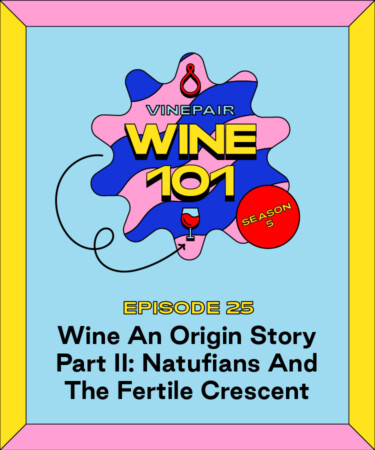Last week, we dipped into wine’s archeological history to theorize how humans first came into contact with the vine. Today, we’re moving out of the Stone Age and into the Neolithic Age. During this time, we see some of the earliest signs of agriculture start to take shape. Nomadic peoples flocked toward fertile land, foraged for seeds, planted whatever they could, and hoped for the best. As far as wine is concerned, we turn our attention to the Fertile Crescent — a mass of land in the Middle East that spans from modern-day Israel to western Iran.
On this episode of “Wine 101,” Keith explains how this area played an integral role in the dawn of wine culture, particularly in the seventh millennium B.C. when we see the earliest chemical evidence of a fermented grape-based beverage. Tune in for more
Listen Online
Follow Keith on Instagram @VinePairKeith. Rate and review this podcast wherever you get your podcasts from. It really helps get the word out there.
“Wine 101” was produced, recorded, and edited by yours truly, Keith Beavers, at the VinePair headquarters in New York City. I want to give a big old shout-out to co-founders Adam Teeter and Josh Malin for creating VinePair. Big shout-out to Danielle Grinberg, the art director of VinePair, for creating the most awesome logo for this podcast. Also, Darby Cicci for the theme song. And I want to thank the entire VinePair staff for helping me learn something new every day. See you next week.
*Image retrieved from Stphanie via stock.adobe.com
